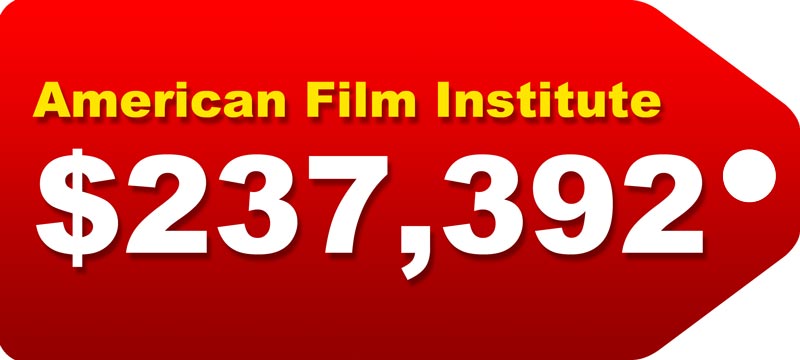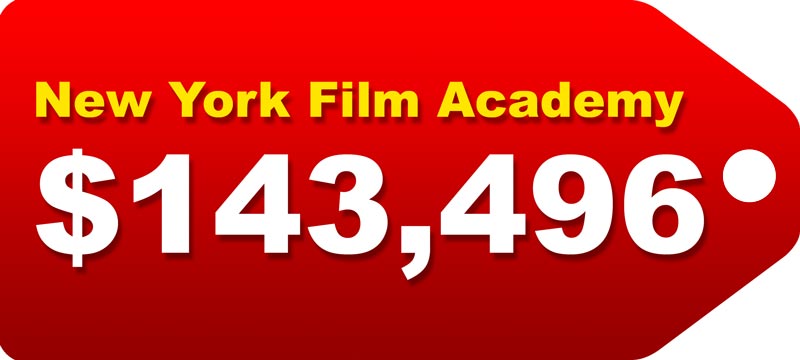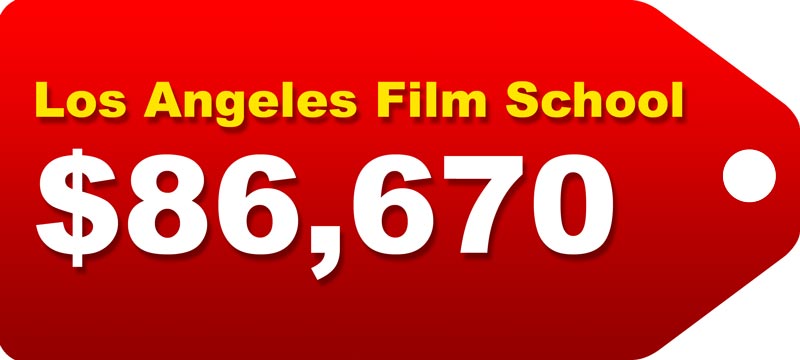Does a Film Degree Matter?
The people hiring you don't seem to think so.
It’s been driven into our heads since we were young– “A college degree is the gateway to a promising career.” While this may hold true for many industries, it does not apply to film and television production.
In this industry, everyone has a stock value over their heads which determines how hirable you are and your worth to the industry. This value is based on the nature of the projects you’ve worked on in the past, how successful they were, and how much money they made. For example, if you have two script supervisors, one who worked on a low budget indie film, and the other worked on HBO’s Succession, which person would you be more inclined to hire on your project?
Notice that at no point did I mention your degree, because it doesn’t matter. People are hired based on the quality of their work, not only in Hollywood but in all aspects of film and video production. If you were to hire a filmmaker to produce a TV commercials, or a documentarian to collaborate on a project, it’s the quality of their demo reel that matters.
That’s not to say that film schools don’t have their values. The opportunities to network and build connections is a plus, but you can easily build your network in the real world by shooting your own projects and collaborating with other filmmakers on theirs.
The biggest drawback is the cost. With the average cost of a bachelor’s degree in film at around $100,000, many top film schools cost $250,000, which doesn’t include room and board, text books, and lab fees. To compound the costs, each student is expected to fund his own productions, adding tens of thousands of dollars more.
“More than 40 recent graduates who spoke with The Hollywood Reporter say their debt is holding them back from advancing like their peers without student loans.”
– Mia Galuppo, Katie Kilkenny, The Hollywood Reporter
My Film School Degree Student Load Debt Has Ruined My Life
by Steve Rhode, Get Out Of Debt Guy
I attended an expensive film school in NY about 5 years ago and I took out a bunch of loans (private and federal). Even with working through school I still ended up with over $200,000 in debt (about $75,000 in private and the balance in Federal.) I’m currently paying around $600 in private loans/month and nothing in Federal due to my tiny income.
Did You Know...
The average cost of a Bachelors of Fine Arts costs
$100,000
and that doesn't include room, board, textbooks, lab fees, and the cost of your own student productions






NYU Film Students Don't Know if the Degree is Worth the Debt
by Aashna Agarwal, Washington Square News
“We’re still shooting with still frames and Canon DSLR when we’re paying near $80,000 a year,” Phillip Youmans said. “To be taking stills? It opened my eyes to how much like a business this college feels sometimes.” Youmans is unsure whether he’ll return to film school. He is already $40,000 in debt for student loans from his first year.
Invest in Yourself
I’ll be honest – film school isn’t for everybody. I wasn’t for me. Even though I got two full rides, I left after a few semesters to run my own production company. That said, I’ve also taught at UCLA and New York Film Academy. There were several instructors who taught that never worked in the business… they were recent graduates themselves who needed a job and got right back into teaching. So you have to be careful of that. Now, with that said, film school does two great things for you – it gets you access to a lot of gear and it’s a great place to network and make friends with people who you may work with in the future.
Not a single client or producer has ever asked me where I went to film school, let alone if I got a degree. Our business is about relationships, who knows you, and how good your work is. Remember, Steven Spielberg never went to film school, and look where he is now. Focus your time on building a great demo reel – that’s what’s going to get you work… not a degree.
One of the big reasons I created FilmSkills was so that you could learn from top people in the industry for a fraction fo the cost of a semester of film school, and invest the rest of your money into buying gear or shooting your projects.
Student Debt's Impact on Post-University Film Careers
by Anthony Kaufman, Filmmaker Magazine
Today, costs at the top film schools are higher than they’ve ever been. Film undergrads at places like CalArts, New York University, USC and Columbia University can expect to pay nearly a quarter of a million dollars for four years of education because of additional laboratory, equipment and insurance costs on top of higher tuition fees.
Explore Your Career Opportunities
Start Your Own Production Company
Learn how to offer script-to screen services for your clients.
Work on a Hollywood Production
Discover opportunities to work on big-budget productions near you
FREE 1-Hour Filmmaking Course
Learn about career opportunities, plus 10 professional techniques to improve your film skills. The next course start in…
Join FilmSkills Today
And start learning the filmmaking process from over 70 Academy Award and Emmy winning filmmakers. Used in over 90 film schools, from UCLA to Yale.

Learn by Topic
Choose from 20 self-guided online courses and earn your certificate.

The Complete Online
Filmmaking Program
Learn the entire filmmaking process from over 70 Emmy and Oscar winning filmmakers.

Build Your Own Course
Mix and match lessons from the FilmSkills curriculum to learn your way.